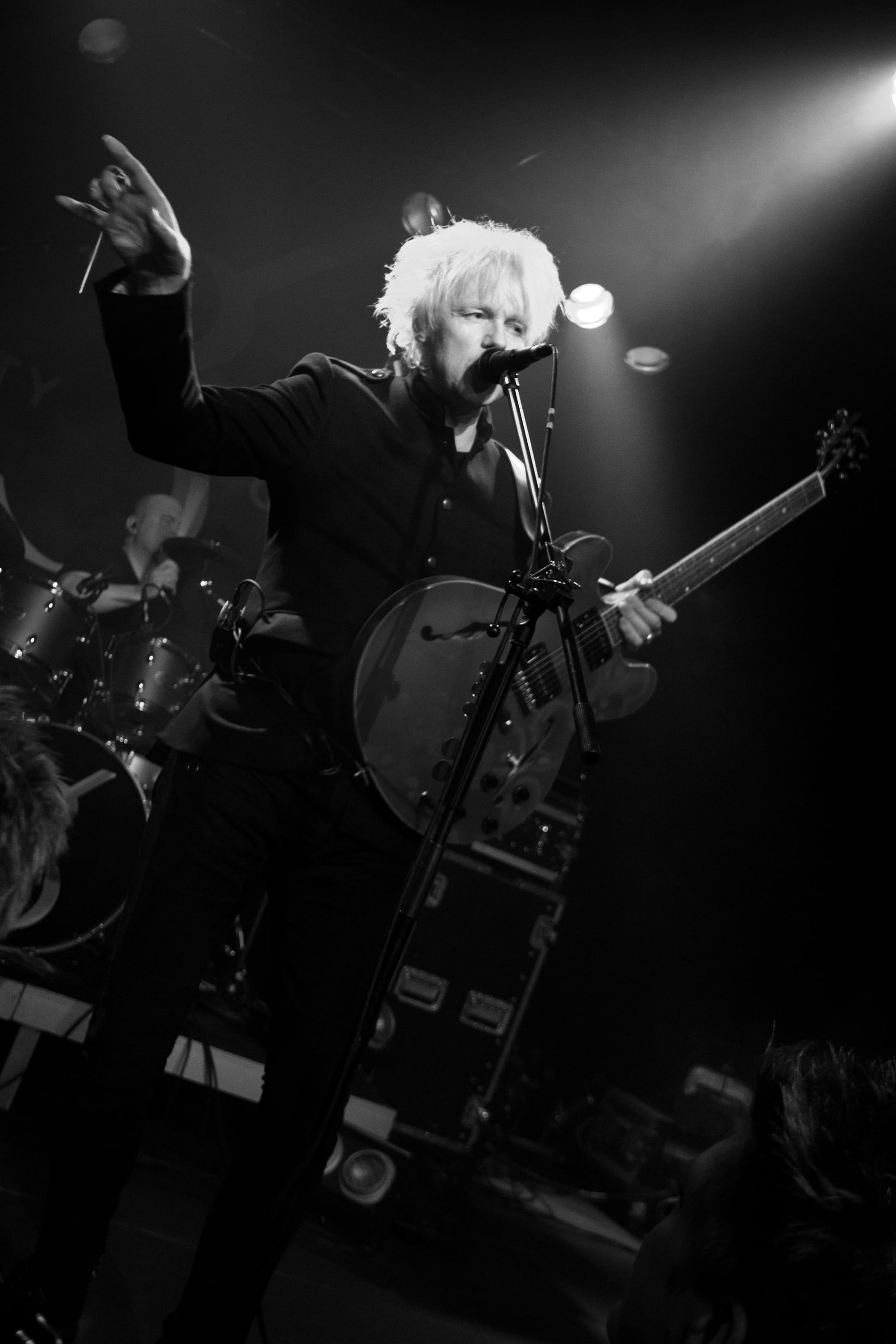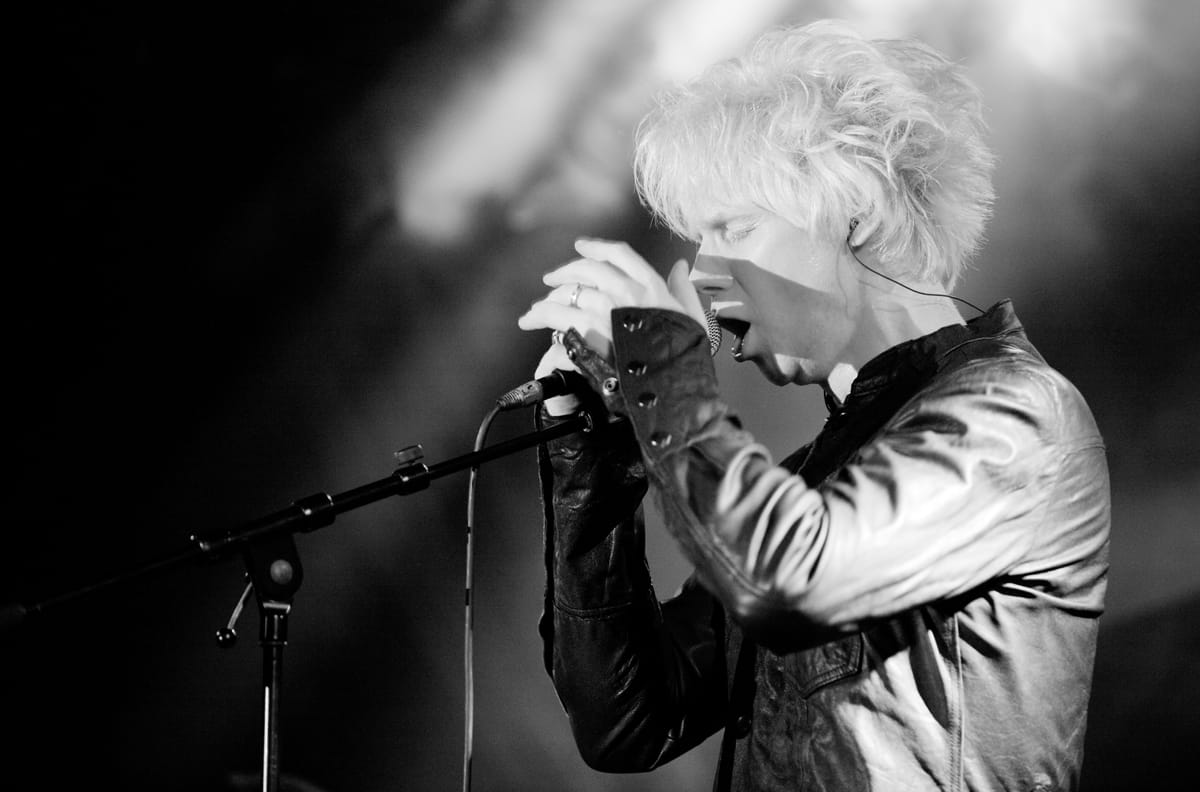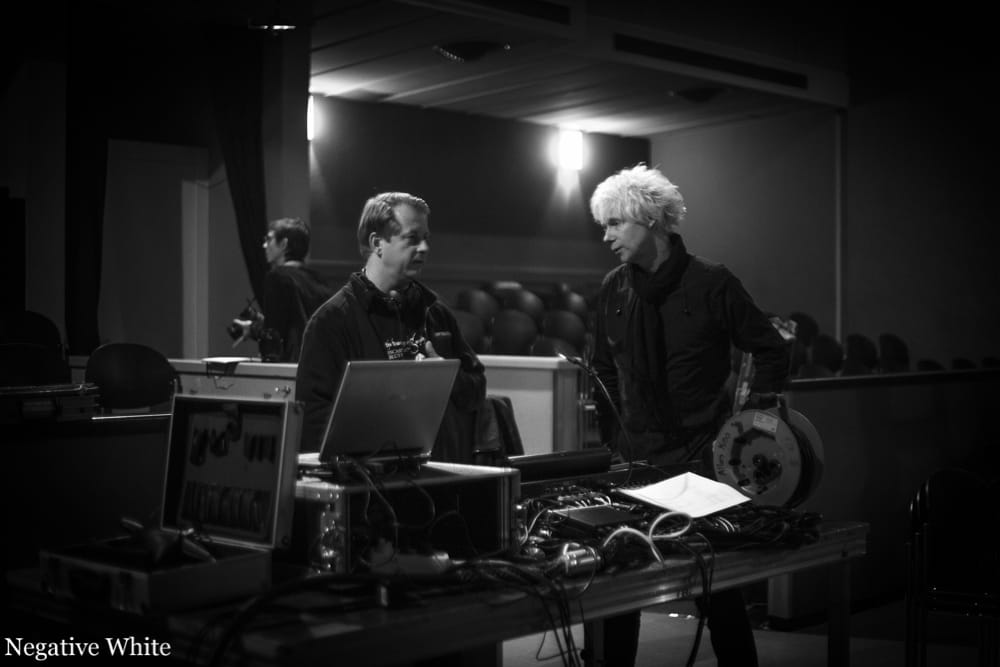Stories
Reports, interviews, essays, and opinions about music and its connection to business and society.
«Harry Kane eats the pizza with a spoon»
Magical music moments in Scotland.
Negative White’s summer break is coming to a close. Refreshed and inspired, I’m eager to get back into writing (and soon curating the Weekly5 again, too).
Today, I’d like to share a short music story from my vacation.
Algorithm Culture
An exploration of culture and its consumption in the age of algorithm, AI-generated content, and digital conformism.
An eerie feeling has been haunting me for months, persistent in nature and nestled somewhere deep in my subconscious. Every attempt to pin this feeling down precisely, to describe it, has so far failed. It has remained a vague approximation.
One of these approximations leads to the question: Where is my enthusiasm?
Some memories are as clear as if they were only moments old. Like the first physical CD, I was sent as a sample lying on the dining table at home. How a thin-lipped woman complains about my aunt singing along to Bob Dylan at the top of her voice and dancing exuberantly. The unbridled nervousness just before Paul McCartney called for an interview.
It’s probably an age thing: the longer you go through life, the rarer the first times become.
But when it comes to culture and music, things should be different. Hearing an artist for the first time, seeing them perform on stage. It happens again and again. But where is my enthusiasm?
5 Songs That Inspired Hugo Trist
Hugo Trist emerges with expressive beats into the field of future garage electronica. We have asked the Swiss artist to share five tracks that inspired his work.
How does futuristic nostalgia sound? What brings together the dark melancholia of the 80s and the danger of electronic experiments? The answer is called Hugo Trist.

Behind the enigmatic persona of Hugo Trist is a man who has roamed Switzerland's music scene since 1995. Urs Meyer, founding and still active member of legendary post-rock band Leech, wanders new paths with this project.
When the single Say It, Mean It dropped in March this year, I was blown away by the «nostalgia-dripping 2-step sound», which he effortlessly catapults «into a contemporary field of tension, meandering between melancholia and excitement.» And then, there are these massive, towering bass drones—shrinking your existence to a spec of dust in the back vortex of space and time.
Hugo Trist's debut EP, Understand Me Now, was released on May 10, proudly showcasing the shades within the dense sound. Collaborating with the mysterious voice of Nin Lil, the tracks gain an almost ethereal quality, a refuge for love and emotion in a cold, broken, post-modern world.
When my shelter starts to burst
And no one's left to hurt
You always seem to raise a smile
With the world at lightning speed
And time is all we need
With you, I want to rest a while
The press briefing for Hugo Trist states: «In the digital age, where everything is possible but nothing is real, Hugo Trist creates a magnetic pull for those who seek the enchanting convergence of sombre moods and electrifying rushes of euphoria.» And it is a perfect description of what to expect when diving into this world. However, I would add a fair warning: Once you are there, you won't easily escape.
But where can we find the spring of inspiration for the sound of Hugo Trist? Where are the traces in music history that we can track to better understand how Urs Meyer, playing the guitar, piano, and synthesisers for Leech, crafted the captivating compositions?
I have asked him to share five tracks that inspired Hugo Trist, and his answers mostly draw a straight line into the melancholic yet hymnic synth-driven songs of the 80s.
Ultravox – Hymn
Uplifting, captivating, powerful, and emotional. Still hits me every time I hear this masterpiece.
The Future Sound Of London – My Kingdom
I have a big love for this combination of mystic and floating sounds and groovy rhythms. I tried to copy this concept many times but never came even close…
Suicide – Surrender
Still feels like falling in love for the very first time!
Talk Talk – Such A Shame
I have no words for it, really. All of Talk Talk’s music touches me deeply, and this one in particular.
New Order – True Faith
The first time I heard this song was in my teenage years when I was riding bumper cars with someone I had a crush on. It has been part of my life since then.
Did you like this story? It took a great deal of time and care to craft. We thank you for supporting us with your tip.
Support usThe Beauty of Gemina Retrospective III: Stripped
Ahead of their 10th studio album, «Songs of Homecoming», we explore The Beauty of Gemina’s history, development, and sound in a three-part retrospective.

I′m standing at the crossroads
There are many roads to take
But I stand here so silently
For fear of a mistake
One path leads to paradise
One path leads to pain
One path leads to freedom
They all look the same.
The Swiss band The Beauty of Gemina is about to release their 10th album, Songs of Homecoming. Before the record’s arrival, I listened to the previous albums again, revising firmly held opinions and sharing past experiences with the band.
For this retrospective series, I went through old backup drives and folders and recovered some material that is no longer available online or has never been published. Today, the third and final part is available.
 Negative WhiteJanosch Troehler
Negative WhiteJanosch Troehler
 Negative WhiteJanosch Troehler
Negative WhiteJanosch Troehler
In May 2016, The Beauty of Gemina did something bold: Announcing their upcoming album, Minor Sun, the single Crossroads was released.
It was daring because it was a cover version of Calvin Russell’s 1991 song; a sure instinct is essential because cover versions are a double-edged sword. They either plunge straight into the listener’s heart—or you stumble and fall into the blade yourself.
But Crossroads’ theme perfectly represented the band’s place at that time. When the song was released, I wrote:
«Learning to communicate my wishes was extremely difficult»
The new EP «Where Do You Wanna Go?» by nothhingspecial is an incredible work of art. A conversation about gut feelings, collaboration, and vulnerability.
There is something magical about a flawless record—one you enjoy on repeat for hours, undisturbed by mediocracy. Although today’s reality is driven by single releases, collecting five outstanding songs in an EP remains a feat rarely accomplished.
In 2021, Cologne-based nothhingspecial gained traction with her self-produced EP somewhere we don’t know, especially with the track find me at the bottom of the ocean. The record is an uncut gem, raw and unpolished in its production but already offering glimpses of potential simmering within the then-20-year-old artist.

We can now hear how this potential would manifest in Where Do You Wanna Go?, nothhingspecial’s sophomore EP released mid-June. It is a far cry from the thin lo-fi sound before. Co-produced by Luis Nussbauer, the record is brazenly good in everything: sound, pacing, variety, and dramaturgy. It is 19 minutes of brilliance.
Nussbauer had a significant influence on the EP—he co-wrote two songs. «I was caught in a creative block. I couldn’t find any inspiration; I didn’t know what to write about. Luis invited me into the studio to experiment without pressure. I’d never experienced that before because I’d always written music on my own before, working for myself in the room,» Chrissie Kühl, aka nothhingspecial, reveals in an interview with Negative White.
